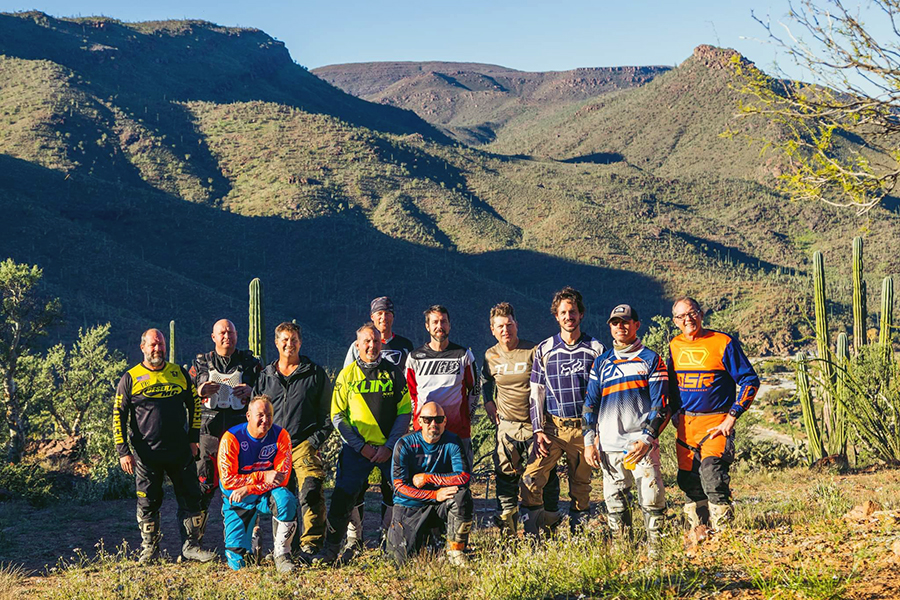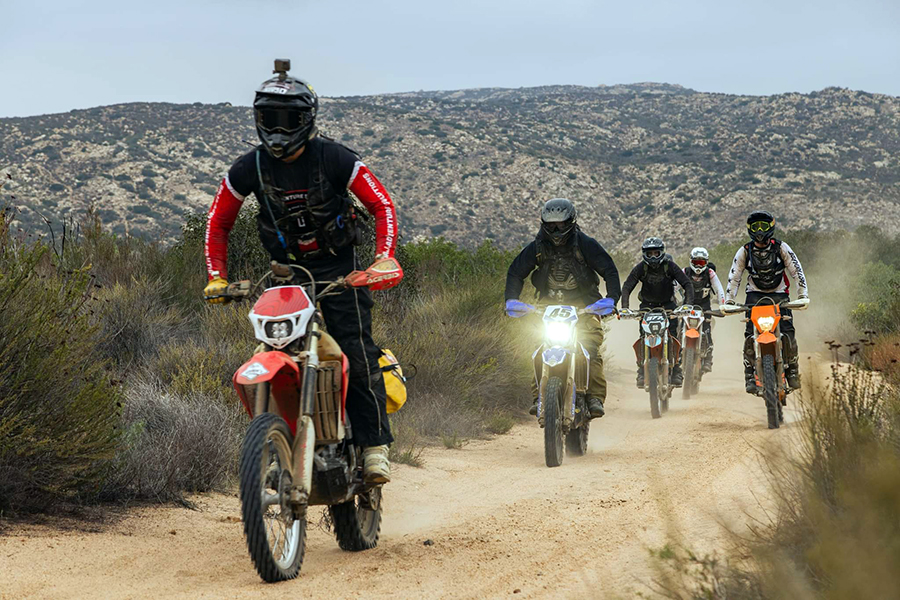First Aid Tips for Baja Riders


Essential First Aid Tips for Baja Riders
1. Carry a Comprehensive First Aid Kit:
Your first aid kit should include bandages, adhesive tape, antiseptic wipes, gauze pads, pain relievers, tweezers, scissors, and any personal medications. Consider adding items like a CPR mask, splint, and a thermal blanket for more serious injuries. Having a well-stocked kit ensures that you are prepared to handle a variety of injuries and emergencies that may occur during your ride.
2. Know Basic First Aid Skills:
Understanding basic first aid procedures can be lifesaving. Learn how to treat cuts and scrapes, burns, fractures, and sprains. Familiarize yourself with CPR and how to manage shock and hypothermia. Taking a basic first aid course before your trip is highly recommended. These skills will enable you to respond effectively in emergencies, providing crucial care until professional help arrives.
3. Treating Cuts and Scrapes:
Clean wounds thoroughly with antiseptic wipes or clean water to prevent infection. Apply an antibiotic ointment and cover with a sterile bandage or gauze. Monitor for signs of infection, such as redness, swelling, or pus. Proper wound care is essential to prevent complications and promote healing.
4. Managing Fractures and Sprains:
For fractures, immobilize the affected area using a splint and avoid moving the injured person unless absolutely necessary. For sprains, apply the R.I.C.E. method: Rest, Ice, Compression, and Elevation. Seek medical attention for severe injuries. Prompt and proper treatment can reduce pain and swelling, aiding in quicker recovery.
5. Dealing with Burns:
Cool burns immediately with clean, cold water for at least 10 minutes. Cover with a non-stick sterile dressing or clean cloth. Avoid applying creams or ointments to severe burns and seek medical help if necessary. Cooling the burn reduces pain and tissue damage, while appropriate dressing protects against infection.
6. Preventing and Treating Dehydration:
Baja’s hot climate can lead to dehydration. Drink plenty of water regularly and avoid excessive caffeine and alcohol. Symptoms of dehydration include dizziness, dry mouth, and dark urine. If dehydration occurs, rest in a cool place and rehydrate slowly. Maintaining hydration is critical to staying alert and avoiding heat-related illnesses.
7. Addressing Heat Exhaustion and Heatstroke:
Heat exhaustion symptoms include heavy sweating, weakness, and nausea. Move to a cool area, drink water, and rest. Heatstroke is more severe, with symptoms like confusion, rapid heartbeat, and loss of consciousness. Seek immediate medical help and cool the person down with water and fanning. Recognizing and addressing these conditions quickly can prevent serious health complications.
8. Recognizing and Treating Hypothermia:
Hypothermia can occur in cooler temperatures, especially at night. Symptoms include shivering, slurred speech, and confusion. Move to a warm area, replace wet clothing with dry layers, and provide warm drinks. Avoid direct heat, as it can cause shock. Keeping warm and dry is essential to prevent hypothermia in cooler climates.
9. Avoiding and Managing Insect Bites and Stings:
Use insect repellent and wear long sleeves and pants to prevent bites. For stings, remove the stinger if present, clean the area, and apply a cold pack. Monitor for allergic reactions, such as swelling and difficulty breathing, and seek medical help if necessary. Protecting yourself from insects helps prevent discomfort and potential allergic reactions.
10. Knowing When to Seek Professional Help:
While many minor injuries can be treated on the spot, knowing when to seek professional medical help is crucial. Severe pain, prolonged bleeding, difficulty breathing, and loss of consciousness are signs that you need to get to a medical facility immediately. Recognizing serious symptoms ensures timely and appropriate medical intervention.
Tips for Staying Safe
Stay Informed:
Know the locations of medical facilities along your route and how to contact emergency services. Familiarizing yourself with these details before your trip ensures you can quickly access help if needed.
Travel with Companions:
Riding with others increases safety. Companions can assist in case of an emergency and provide additional resources. Group travel also enhances the overall experience and provides a support system.
Regular Check-Ins:
Inform someone about your route and check in regularly. This ensures that help can be sent if you don’t return on time. Regular communication updates provide peace of mind for both you and your loved ones.
Practice Preventive Care:
Take regular breaks, stay hydrated, and protect yourself from the sun. Prevention is key to avoiding many common health issues on the road. Adequate rest, hydration, and sun protection keep you healthy and alert, reducing the risk of accidents and illnesses.


